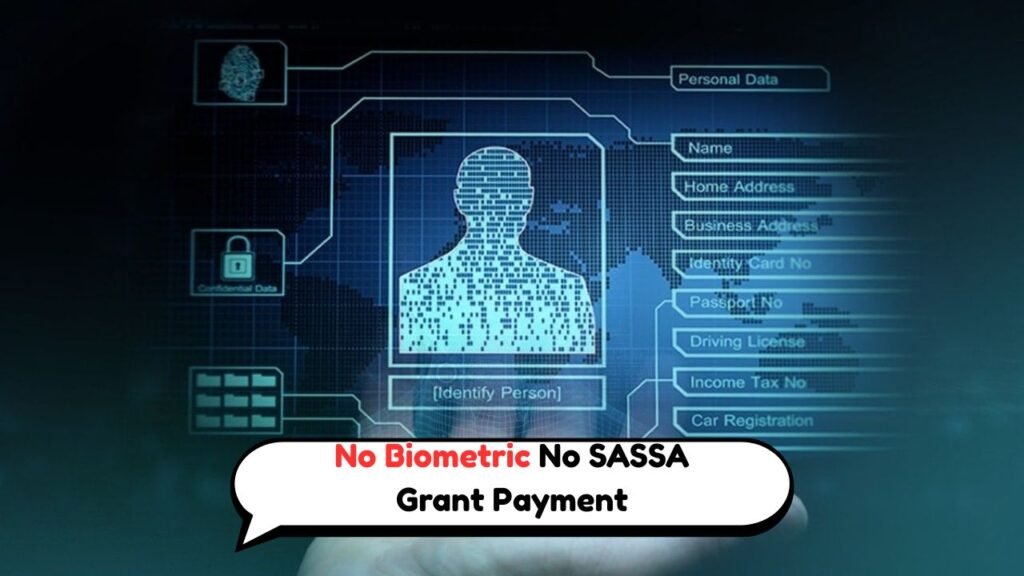Urgent Alert: Thousands of SASSA Grants in Jeopardy as Biometric Verification Becomes Mandatory: South Africa’s social welfare landscape is undergoing a significant transformation as the South African Social Security Agency (SASSA) implements mandatory biometric verification for grant beneficiaries. This change, aimed at enhancing security and reducing fraud, has raised concerns among thousands of beneficiaries who rely heavily on these grants for their daily survival. The introduction of this system means that beneficiaries must now undergo biometric authentication, such as fingerprint scanning or facial recognition, to receive their monthly payments. While the initiative promises to streamline processes and ensure that aid reaches its rightful recipients, it has also sparked anxiety about access and potential disruptions for those unfamiliar with or unable to meet the technical requirements.

Biometric Verification: A Necessary Step to Curb Fraud in South Africa’s Social Grant System
The decision to enforce biometric verification for SASSA grants stems from a growing need to tackle fraud and corruption within the social security system. South Africa has long battled issues of fraudulent claims and ghost beneficiaries, which drain resources meant for the truly needy. By introducing biometric data as a verification tool, SASSA aims to ensure a more secure and efficient distribution of grants. This system requires beneficiaries to register their unique biological markers, such as fingerprints or facial features, which are then used to authenticate their identity at payment points. While the benefits of such a system are clear in terms of reducing fraud, the transition has not been without its challenges. Many beneficiaries, particularly those in rural areas or those with limited access to technology, face hurdles in adapting to this new requirement. The fear of being unable to access their grants if they fail to comply with biometric verification has left many anxious and uncertain about their financial future.
Concerns and Challenges: The Human Impact of Mandatory Biometric Verification
While the implementation of biometric verification for SASSA grants is intended to enhance the integrity of the system, it has also highlighted significant challenges, particularly for elderly and disabled beneficiaries. The requirement for physical presence and the use of technology can be daunting for those with mobility issues or who are not technologically savvy. There are also concerns about the accessibility of registration centers, especially for individuals living in remote areas where transportation is limited. SASSA has acknowledged these challenges and is working towards solutions such as mobile registration units and assistance centers to facilitate the transition. Nevertheless, the anxiety surrounding the potential loss of grant access remains a pressing issue for many. The shift to biometric verification underscores a broader need for support systems that can aid beneficiaries in adapting to new technologies while ensuring that no one is left behind in the process.
Ensuring a Smooth Transition: SASSA’s Efforts to Educate and Assist Beneficiaries
In response to the concerns raised by beneficiaries, SASSA has initiated various programs aimed at easing the transition to biometric verification. These include awareness campaigns to educate grant recipients about the new requirements and how to comply with them. SASSA is also deploying mobile units to reach remote communities, ensuring that beneficiaries can register for biometric verification without the need for costly travel. Workshops and informational sessions are being conducted to help beneficiaries understand the process and alleviate fears. Additionally, SASSA is coordinating with local community leaders and organizations to spread information and provide assistance where needed. These efforts are crucial in ensuring that beneficiaries do not face unnecessary hurdles in accessing their grants and that the transition is as smooth as possible. By prioritizing education and support, SASSA aims to build trust and confidence among beneficiaries in the new system.
The Future of Social Grants in South Africa: Balancing Technology and Accessibility
The move towards biometric verification represents a significant shift in the administration of social grants in South Africa, reflecting a global trend towards digital solutions in governance. While the primary goal is to enhance security and efficiency, it is crucial that these technological advancements do not come at the expense of accessibility for the country’s most vulnerable populations. As SASSA continues to roll out this new system, the focus must remain on ensuring that all beneficiaries can access their grants without undue difficulty. This involves not only technological solutions but also a commitment to maintaining robust support networks and infrastructure that can adapt to the needs of diverse communities. Looking ahead, the integration of technology into social services should be seen as an opportunity to improve service delivery while upholding the principles of equity and inclusivity. By balancing innovation with accessibility, South Africa can ensure that its social security system remains a lifeline for millions.




